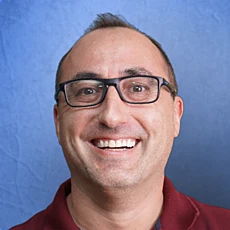Finding the Right Maine Rehab
Table of Contents
- Finding the Right Maine Rehab
- Drug and Alcohol Addiction in Maine
- Maine Addiction Treatment Centers
- Levels of Care in Addiction Treatment Centers in ME
- Inpatient Rehabilitation
- Detoxification Program
- Substance Abuse Therapy Options in Maine
- 12-Step Programs and Alternatives in Maine
- Meditation and Yoga
- Medication Assisted Treatment or MAT in Maine
- Outpatient Treatment Service in Maine
- Occupational Therapy and Maine Life Skills Programs
- The Importance of Building Skills in Addiction Aftercare
- Parenting Classes as a Component of Rehabs in Maine
- Options for Addiction Aftercare Support in Maine
- Traveling to Maine for Addiction Treatment
- How Much Does Rehab Cost in Maine?
- Does Insurance Cover Out-of-State Rehab?
- What Is the Average Time Spent in Rehab?
- Rehabs with the Highest Success Rate in Maine
- Top Drug Rehabs in Portland Maine
- Finding and Choosing an Addiction Treatment Center
- Finding Drug Rehabs in Bangor Maine
- Find an Addiction Treatment Center to Meet Your Needs
- Medically Reviewed By
Substance abuse and drug addiction can lead to life-threatening medical emergencies and permanent damage to patients’ physical, emotional, and mental health. Maine addiction treatment centers form a top source of support for those battling substance use disorders.
Addiction is not a permanent state of being. Yes, getting out of this harmful cycle can seem unimaginable, but with some time and a lot of effort, it is possible to see the light at the end of the tunnel.
This is not something that anyone can overcome alone. Aside from the continued love and support of friends and family, addiction treatment services are crucial for helping patients get better.
Keep reading to find the most effective treatment centers in Maine, as well as much more about the factors to consider when choosing a rehab that fits your needs!
Drug and Alcohol Addiction in Maine
Drug deaths in Maine rose continuously from 2014 to 2018, then began to dip in 2019. Unfortunately, the COVID-19 pandemic in 2020 exacerbated drug use and worsened struggles related to substance abuse treatment across the board.
Between 1997 and 2021, more than 5,000 Maine residents lost their lives due to drug overdoses. Even more, suffer from addiction: the National Survey on Drug Use and Health (NSDUH) estimates that 8.64% of Mainers above the age of 12 suffer from substance use disorder.
According to the Maine Drug Data Hub, the number of Mainers receiving treatment for substance abuse has been steadily increasing since 2015.
Maine Addiction Treatment Centers

To respond to this growing challenge, Maine’s addiction treatment centers have been highlighted and challenged to develop programs to accommodate residents and people from nearby states seeking treatment.
These facilities and treatment centers cater to patient needs with personalized programs designed specifically for their substance and drug abuse cases. Some of Maine’s centers also have specialized programs should patients require different accommodations for their recovery journey.
Levels of Care in Addiction Treatment Centers in ME
The journey of every individual against alcohol and substance abuse is unique, so you must make sure that the treatment center you choose will address your specific needs.
The standard levels of care and treatment are classified as inpatient, outpatient, and aftercare support.
Inpatient Rehabilitation
This is the treatment setup where patients must reside in the treatment center. Payment covers the treatment program along with housing and meals. This is recommended for people who want complete immersion and zero distractions—who are determined to fully recover in a controlled environment with 24/7 supervision and care.
Life inside residential treatment is structured so patients can be re-acquainted with the importance of having a regular routine. Medical and emotional support are readily available from staff and other patients to encourage personal growth and prevent relapse.
With in-patient rehabilitation, patients are given individualized treatment and care management plans that will be followed closely while in the facility. This provides much-needed structure, but patients still have enough freedom to enjoy their free time and recover at their own pace.
Here are some of the programs included in in-patient rehabilitation:
Detoxification Program

A detox program is the first phase that every substance addict must go through. Every treatment facility has its own approach to implementing this first step towards recovery, but the main goal is shared.
The primary purpose of the initial detox program is to address the physical aspect of addiction. This means that all traces of alcohol or illegal substances must be removed from the patient’s system.
The detox process includes the gradual and complete elimination of the element the patient is addicted to. This allows the brain and the rest of the body to transition and adjust to the absence of these chemicals.
During detox, patients experience physical effects commonly referred to as withdrawal symptoms. Medically assisted detox, so far, is the most effective approach in this first stage. The patient is fully supported when it comes to the physical aftermath. Furthermore, motivation from a team of detox specialists can make a huge difference, especially once the detox program’s psychological and mental health effects begin to truly emerge.
Substance Abuse Therapy Options in Maine
Based on the professional treatment advice and diagnosis given by specialists, patients often undergo several types of therapy programs while in rehab.
Many patients undergo Cognitive Behavioral Therapy (CBT), which is an effective and proven method for lightening the burdens of addiction. CBT spans at least five sessions, and the goal is to identify the negative behaviors and thoughts of the patient through conversations with the resident psychologist. Then, a positive and more constructive reaction is taught and developed.
Psychotherapy is another element of rehab, often used for alcohol treatment. This is done so the patient can understand their substance cravings as they go through the sobriety journey. This kind of therapy can last for weeks to several months.
12-Step Programs and Alternatives in Maine

A 12-Step Program is a supportive group that can openly share their struggles and celebrate their wins in their journey to overcoming substance and alcohol abuse. Alcoholics Anonymous uses this methodology, as being surrounded by people with similar experiences will help patients feel less alone.
This is one of the most powerful and effective support systems in which any recovering addict can be involved.
This is a mutual help for every member—they support and encourage one another and never be judged for their past actions. Acceptance and accountability are two of the main goals of this program.
Another important feature to develop in the Maine addiction treatment landscape has been recovery community centers, such as the Portland Recovery Community Center. For those seeking an easy-to-access way of starting to learn about sobriety, either 12-step-based or otherwise, such facilities are often life-changing.
SMART Recovery and other forms of non-12-step programs are also beginning to gain traction in Maine rehabs, outpatient programs, and nationwide. Both at community centers and across the state, as well as online, these types of offerings can provide hope for those who have not been able to find lasting sobriety using a 12-step model.
Meditation and Yoga
These holistic treatments are often incorporated into a patient’s “day in the life” inside the rehabilitation center. Meditation and yoga don’t need to be a wholly spiritual experience—they are implemented so patients can have alternative methods to manage their cravings, especially during the detoxification and initial recovery stage.
Patients can better control their emotions and reactions to their struggles by relaxing the body and mind. Mindfulness activities help develop clarity and inner peace. In the long run, these practices help with addiction recovery and improve patients’ overall mental health.
Medication Assisted Treatment or MAT in Maine
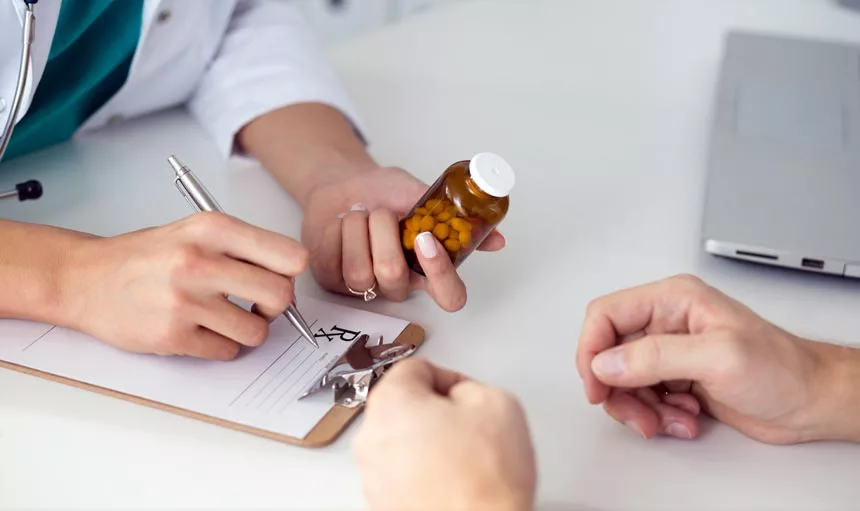
Prescription medication can help the physical symptoms of the recovering patient. For alcohol treatment, the US Food and Drug Administration has approved the use of three drugs: acamprosate, disulfiram, and naltrexone. These drugs are intended to increase the abstinence success rate.
For substance abuse specific to opioids, methadone and buprenorphine are used. Note that these are medications that can only be prescribed by attending physician. These medications are only dispensed by qualified staff and only during a limited period to minimize symptoms and accelerate recovery.
Outpatient Treatment Service in Maine
Outpatients must visit the treatment center at least 10 to 12 hours a week to join activities that will help their recovery.
This is a less restrictive recovery method; patients can continue with their real life as they work toward sobriety. Outpatient services are recommended for patients with milder addictions who are highly motivated to stop using substances and succeed in recovery.
Despite not being monitored 24/7, patients under outpatient treatment are encouraged to join programs such as:
Occupational Therapy and Maine Life Skills Programs
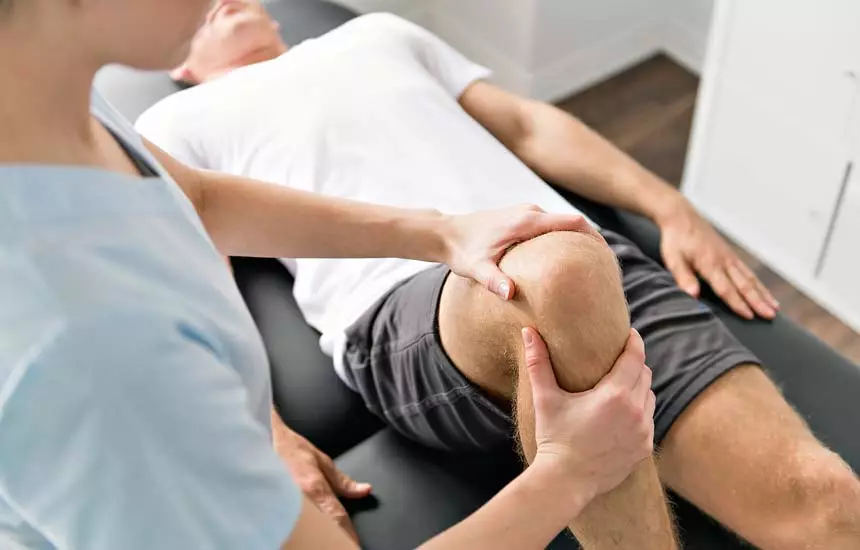
Drug and substance addiction has a broad impact, and in severe cases, it can significantly impact the physical ability of those affected. Occupational therapy is a crucial outpatient rehab program to restore patients’ abilities and overcome the challenges that they face during recovery.
Occupational therapists help clients develop better coping skills for pain, stress, and crisis management. Mindfulness techniques, reframing, progressive muscle relaxation, and even sleep hygiene can help restore clients’ ability to recover and maintain sobriety despite the challenges they may face in the future.
By the end of the program, patients can manage their struggles and return to being fully functional and self-reliant.
The Importance of Building Skills in Addiction Aftercare
Life skills training goes hand-in-hand with occupational therapy. By definition, life skills are the crucial abilities that a person should know and possess to navigate their life and find success.
These skills can range from how to manage money, be a productive part of a team or organization, apply for a job, manage time, make professional and personal connections, be better at communication, and many more.
These life skills are impacted severely when a patient is deep in their substance abuse. Some end up reaching adulthood lacking these skills. The aim of this program is independence and self-sufficiency, with healthy coping methods to help recovering patients avoid relapses.
Parenting Classes as a Component of Rehabs in Maine

Substance dependence leads to prolonged destructive behavior and selfish tendencies. Addicts who are also parents end up ignoring the needs of their children because of their focus on their addiction. They are neglectful and do not provide even the basic needs of the children under their care.
With parenting classes, recovering addicts can learn general parenting skills, such as changing diapers, feeding babies, developing routines, and, more importantly, providing much-needed stability and understanding the importance of developing positive relationships with their children.
These sessions provide guidance and awareness to help patients make up for their past behavior and become better parents moving forward.
Options for Addiction Aftercare Support in Maine
This extension program is for patients who have completed recovery within rehabilitation centers.
With aftercare support, the inpatient treatment facility draws recommendations and plans for patients as they re-integrate into society. These programs and treatments are based on the patient’s clinical needs, long-term goals, and personal recovery timeline.
Traveling to Maine for Addiction Treatment

Residents of Maine, nearby states, and anybody who wants to be treated for addiction can do so confidently. Maine has plenty of in-patient and outpatient treatment centers for anybody seeking addiction treatment, specifically for substance use disorder and alcohol treatment.
Regardless of your current financial state, the severity of your addiction and the type of treatment program recommended for recovery, Maine has more than enough facilities to provide you with the assistance you need.
Maine has a pool of specialists and medical professionals ranging from physicians to aid workers to ensure that you will get the support you need physically, mentally, emotionally, and psychologically.
The communities of Maine have accepted that drug and substance abuse is a serious problem and, as a result, are fully supportive of recovering individuals. The state has implemented programs and opened up its communities to help give everyone a chance for recovery.
How Much Does Rehab Cost in Maine?
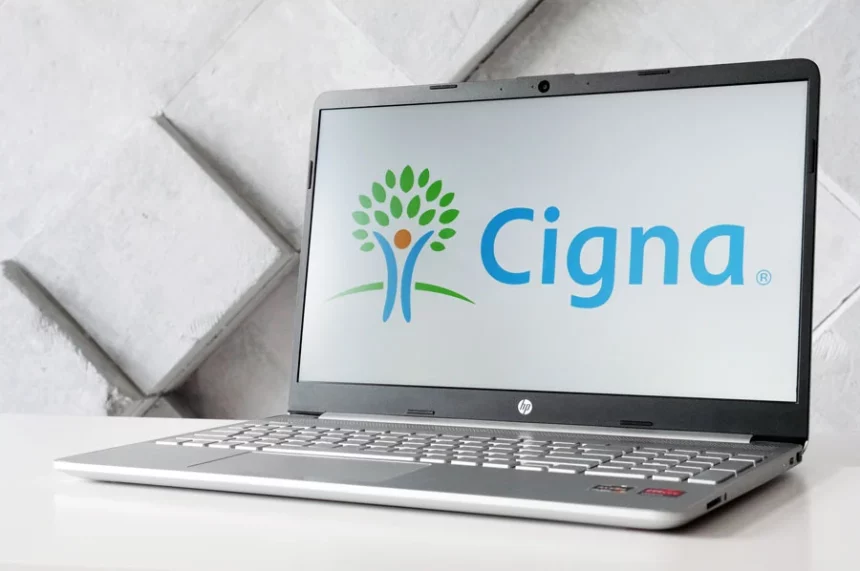
There are free rehab centers and government-funded rehabilitation centers in Maine. Private treatment facilities have comfortable amenities, well-trained staff, and specialized programs.
Treatment costs vary widely based on the rehab centers and the specific programs patients opt for.
For example, at PineTree Recovery, the price for treatment starts at $3,000, while in McLean Borden Cottage, pricing starts at $64,500. Contact Find Addiction Rehabs directly to discuss costs, payment plans, and insurance coverage for your facilities of choice.
The self-pay option may be a little steep, but it is one of the ways to finance treatment aside from using private insurance. You may also consider private pay alternatives, like getting in touch with zero-financing organizations that can cover the one-year cost with zero to minimal interest rates. Explore the possibility of a sliding fee scale option as well.
A medical loan from your bank is another option that you can explore. Still, certain factors will be considered, such as your credit score, existing loans, a viable and steady source of income, and possible collateral.
Most of the rehabs in Maine accept and consider the following patient options from private health insurance:
- Aetna
- Anthem
- Beacon
- BlueCross / BlueShield
- Cigna
- Emblem
- Horizon
- Humana
- Magellan Health
- Meritain Health
- UnitedHealthcare
Does Insurance Cover Out-of-State Rehab?

Private health insurance typically covers treatment costs associated with alcohol and drug addiction. But the specific coverage of out-of-state rehab will be based on your private insurance plan and provider.
If you are interested in out-of-state rehab, contact Find Addiction Rehabs for your options and discuss the amount you need to cover out of pocket.
In-state addiction treatment providers are not always the best option. Before entering any substance abuse treatment program, knowing about all your programs and understanding all the details of your insurance coverage is essential.
Agreeing with a private and convenient solution without compromising high-quality behavioral healthcare is a win-win solution for you and your recovery!
What Is the Average Time Spent in Rehab?
The amount of time spent in alcohol rehab centers and alcohol treatment centers depends on the severity of the addiction. The most effective programs are individualized based on the needs of each patient, so there is no one-size-fits-all timeline.
Detox programs can last up to one week, marking the beginning of the journey to recovery.
Some drug rehab centers offer short-term treatment for a few days to two weeks. Some patients require long-term treatment plans that span three months to one year.
The specific timeline depends on the patient’s progress and readiness to rejoin society. Patients must maintain healthy communication with their treatment provider and follow their professional treatment advice for a full recovery and no relapses.
Rehabs with the Highest Success Rate in Maine

Maine’s rehabilitation and treatment facilities have a unique approach to treating their patients and gearing them towards successful sobriety. As a patient, you need to be comfortable and secure in your recovering environment.
Here are some of the rehabs in Maine that you can explore further:
Top Drug Rehabs in Portland Maine
1. Foundation House
One of the most vital points of Foundation House’s program is helping its clients rebuild a stronger foundation for recovery. Goals are encouraged so patients can have something more substantial to motivate them as they transition back to society and live a life of sober freedom.
The entire program of Foundation House is geared toward holistic healing. With this mindset, it is not just the body that is restored during recovery, but also the mind and spirit.
Foundation House is a trusted institution in Maine, with a Legit-Script Certification and Joint-Commission accreditation.
2. Liberty Bay Recovery Center
Liberty Bay Recovery Center is a premiere center for drug and alcohol detox in Portland, Maine. Its dynamic programs are designed to support and empower patients. Some treatment services and programs include alcohol detox, medically supervised drug detox services, medication-assisted treatment, dual diagnosis treatments, and intensive outpatient programs.
3. Granite Recovery Centers
One hour and thirty minutes from the North of Boston, Granite Recovery Centers offer treatment centers that cater to Maine residents and those from nearby New Hampshire, Vermont, Rhode Island, Connecticut, and Massachusetts.
Granite Recovery Centers form various nationally accredited substance use and detoxification treatment centers and is one of the most respected providers in the Northeast. The staff is fully dedicated to ensuring their patients have a clearer and guided road to recovery.
Finding and Choosing an Addiction Treatment Center
Finding an addiction treatment center for yourself or a loved one can be overwhelming. You want to be in good, reliable hands and integrate into a safe and healthy environment that will help with recovery.
In Maine, the Substance Abuse Department under the Office of Behavioral Health is tasked with planning, implementing, regulating, and evaluating treatment centers across the state.
Finding an addiction treatment center usually involves getting in touch with the Alliance Maine treatment center specific to your region, and from here on, there are many resources for patients and families to find the right addiction treatment center:
- SAMHSA Behavioral Health Treatment Locator
- Maine Behavioral Health Crisis Number: 1-888-568-1112
- Call Find Addiction Rehabs to find out which treatment centers and programs are covered by your plan.
You must also consider the following crucial factors that will affect your final choice:
- Field of care – Addiction treatment takes several stages; unfortunately, there is no static timeline for each phase. Choose a program and facility with a continuum of care most conducive to total recovery that includes but is not limited to relapse prevention, co-occurring addictions, and aftercare support.
- Licensure – Opt for a treatment center that is qualified and licensed by the Maine Board of Alcohol and Drug Counselors. All staff should have valid licenses in Maine.
- Family support and involvement – Determine the extent of your family’s participation in healing. Some facilities encourage or require family sessions. Learn about the role you need to play and the responsibilities you have to undertake while you or your loved one is getting treatment.
- Tailored treatment – Patients need individualized treatment plans with progress reports, specific recommendations, and markers for progress. The best treatment centers provide this for each patient, with a thorough evaluation process long before an individual steps into the facility. Addiction recovery is a very personal and intimate process, and generalized plans will not work for anyone.
- Cost – getting help and receiving treatment is not an overnight process, so in reality, the right kind of treatment involves continuous financial support. Before deciding, you need to consider your financial capability and the financial aid you may receive from loved ones.
Finding Drug Rehabs in Bangor Maine
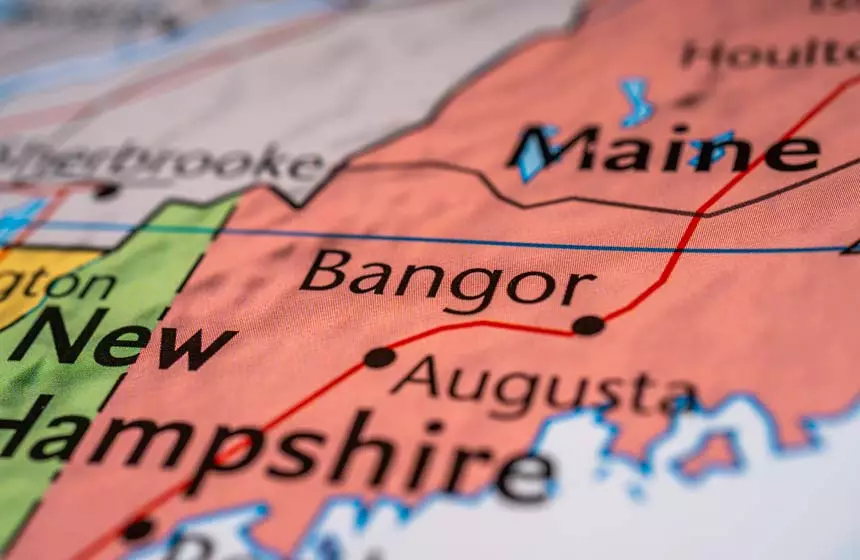
The community of Bangor and its surrounding areas have been particularly hard hit by the opioid epidemic. Due to its northern location, and relative ease of access by way of I-95, the city has seen an influx of drug dealers arrive to peddle their wares at higher prices than most locations tolerate.
Their inflated profits have caused misery, with a rise in fentanyl overdose and a lack of treatment centers to meet the needs of Bangor and the many cities for which it is an ‘urban hub.’
While options like Wellspring and others exist in Bangor, the potential for out-of-state treatment covered by your insurance may be an attractive one for people dependent on heroin or other opiates. Plus escaping a long winter with a rehab stay in California isn’t always the worst prospect! A confidential call to Find Addiction Rehabs can quickly provide details of your coverage for treatment at top centers, both in Maine and across the country.
Find an Addiction Treatment Center to Meet Your Needs
Addiction is a chronic disease that affects every part of a person’s life. Recovery involves a tremendous amount of effort on the patient’s part and strong support from their immediate community and a group of experienced, highly trained professionals.
Rehab centers in Maine offer safe, and comfortable substance abuse treatment services that can finally free you or your loved one from the chains of addiction, but an out of state option can also be a wide choice, depending on your needs and resources.
Never hesitate to get the treatment you need. Reach out and ask for help and Find Addiction Rehabs will meet you halfway to ensure that you get the best second chance in life. Support is readily available, and with many top treatment facilities and resources nationwide, assistance is just a call away.
Pick up the phone and call a recovery representative at Find Addiction Rehabs today!
Eric R. hails from Maine and does extensive work in the field of behavioral health as both a professional writer and passionate advocate for those suffering. From his own personal encounters with mental illness, he speaks to those seeking healthy relief from depression and anxiety and embraces wellness both personally and professionally. After losing friends and family to the darkness of suicide, Eric aims to educate and inform about the nature of treatment and render it accessible for all those seeking a way out of darkness and despair.

